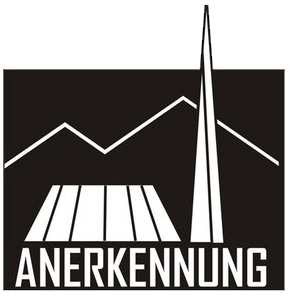Der Gesetzgeber Georgiens hat einer im Jahr 2010 eingereichten Petition stattgegeben und „den Massenmord an Tscherkessen (Adyge) während des Russisch-Kaukasischen Krieges und ihre zwangsweise Aussiedlung aus ihrer Heimat als einen Akt von Genozid entsprechend der 4. Haager Land- und Kriegsrechtskonvention vom 18.Oktober 1907 sowie der UN-Konvention zur Verhütung und Bestrafung von Genozid vom 9. Dezember 1948“ anerkannt. Des Weiteren erkannte das Parlament die während und nach dem Russisch-Kaukasischen Krieg im 19. Jh. Deportierten und Vertriebenen als Flüchtlinge an.
Obwohl in Georgien auch Nachfahren griechischer (Pontos und Kappadokien) und armenischer Flüchtlinge aus dem Osmanischen Reich leben, hat Georgien zur Enttäuschung dieser Bürger/Innen die Massaker und Deportationen dieser Bürger/Innen bisher nicht als Völkermord anerkannt bzw. verurteilt, was unter anderem die moralische Nachhaltigkeit des jüngsten Parlamentsbeschlusses trübt, gerät er doch durch diese Einseitigkeit in den Verdacht, aus Opportunitätsgründen bzw. einseitig antirussischem Ressentiment gefasst worden zu sein. Nur wenn der russisch-osmanische Antagonismus im 19. und frühen 20. Jh. in seiner Gesamtheit betrachtet und die vor diesem Hintergrund im Russischen wie Osmanischen Reich betriebene Bevölkerungspolitik als genozidal verurteilt wird, sind menschenrechtliche Erfolge jenseits der nationalen Bündnispolitik zu erwarten.
Resolution of the Parliament of Georgia On the Recognition of Genocide of Circassians by the Russian Empire
Recalling the colonial policy of the Russian Empire towards Circassians during the Russo-Caucasus war (1763-1864), when the Russian political and military leadership planned and executed ethnic cleansing of Circassian territories, subsequently settling the territories with other ethnic groups;
Recalling the fact that as a result of multiple punitive military expeditions, more than 90% of the Circassian population was annihilated; Recalling numerous official documents of the Russian Empire confirming its aggressive actions, such as artificially engineered famines and epidemics amongst the civilian population, aimed at the physical annihilation of representatives of the Circassian people; Recalling the 7 February 1992 Decree of the Supreme Council of Kabardino Balkaria Republic (№977–XII-B) on the Condemnation of the Act of Genocide of Adyge (Circassians) During the Russian-Caucasian War, and legally and politically assessing the results of the Russo-Caucasus War (1763-1864);
Recalling extensive legal and historic research which established presence of both fact and intent of genocide in the case concerned;
The Parliament of Georgia:
1. Recognises the mass murder of Circassians (Adyge) during the Russo-Caucasus War and their forceful eviction from their homeland, as an act of genocide, in accordance with the IV Hague Convention on Laws and Customs of War on Land of October 18, 1907 and the UN Convention on the Prevention and Punishment of the Crime of Genocide of 9 December 1948;
2. Recognizes the Circassians, forcefully deported during and after the period of the Russo-Caucasus War, as refugees, in line with the Convention on the Status of Refugees of 28 July 1951.
Internet-Fundstelle: http://www.parliament.ge/index.php?lang_id=ENG&sec_id=63&info_id=31806
